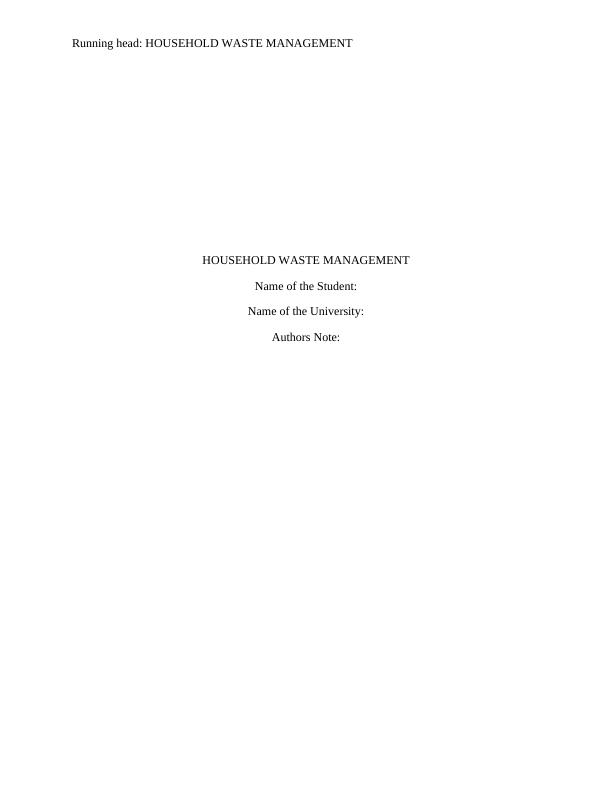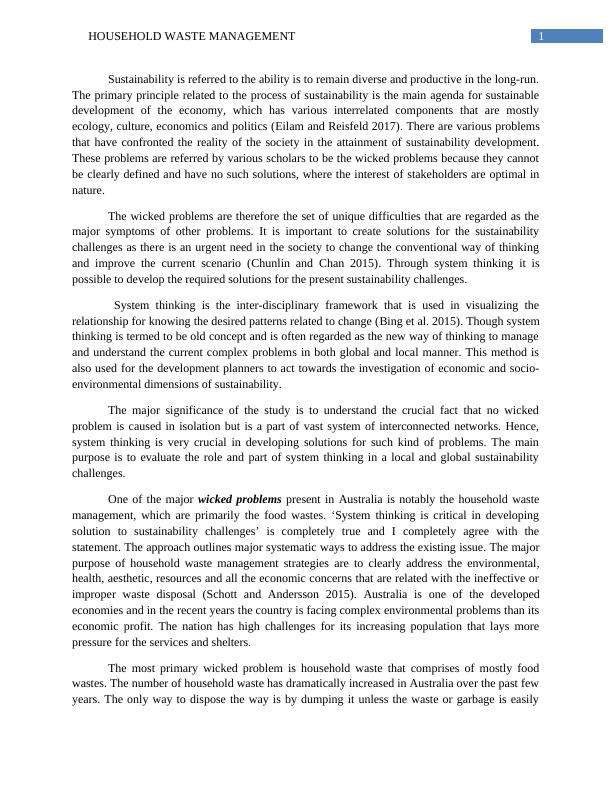Household Waste Management: A System Thinking Approach
5 Pages1809 Words380 Views
Added on 2023-06-14
About This Document
This article discusses the wicked problem of household waste management in Australia and how system thinking can be used to develop solutions. It covers the various challenges and factors affecting waste management, including public health, environment, and public awareness.
Household Waste Management: A System Thinking Approach
Added on 2023-06-14
ShareRelated Documents
End of preview
Want to access all the pages? Upload your documents or become a member.
System Thinking for Achieving Sustainability: A Case Study on Household Food Waste Management in Australia
|10
|2605
|139
Systems Thinking in Dealing with Sustainability Challenges: Household Food Waste
|10
|2934
|95
The Role of Systems Thinking in Developing Solutions for Sustainability Challenges: A Case Study of Household Food Waste in Australia
|8
|2311
|354
Systems Thinking for Sustainability Challenges: China's Ban on Australia's Recycling Waste
|13
|3033
|66
System Thinking and Sustainability: China's Ban on Australia Recycling Waste
|10
|3076
|71
Waste Management: A Wicked Problem
|8
|2136
|245


